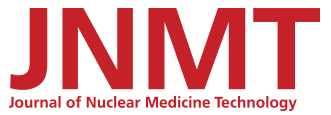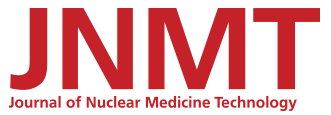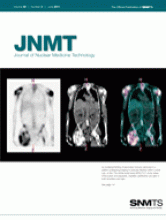
David Perry, CNMT, PET
The NMTCB is excited to announce that it has contracted with a new testing company to administer the entry-level exam, as well as the nuclear cardiology technologist (NCT) and PET specialty exams. Beginning February 1, 2011, our exams are being administered by Iso-Quality Testing, Inc. (IQT), which is based in Dunedin, Florida. Working with IQT offers many advantages to the NMTCB, including many new services and very good cost containment. There are also advantages to be gained by our candidates and certificants, as IQT maintains nearly twice as many testing centers in the United States as our previous testing company, including centers in Europe, Asia, and Australia, a service not previously available.
The NMTCB exam is divided into 4 subgroups: radiation safety, instrumentation, clinical procedures, and radiopharmacy. Another exciting opportunity offered by our new testing company is the ability to report scaled scores for each of the exam subgroups, in addition to a scaled score for the full exam. The scaled score is not the percentage of correct items but is representative of how well a candidate performed in each subgroup or for the entire exam. Calculating scaled scores involves a statistical process that adjusts for variations in the difficulty of different forms of the exam so that any particular scaled score will represent the same level of knowledge from exam to exam. In the past, the NMTCB has reported the relative ranking for each subgroup, describing in which subgroup the candidate did the best, the second best, etc. Although that report described to the unsuccessful candidate in which subgroup he or she performed most poorly, it did little to guide that candidate on whether performance was poor in more than 1 subgroup. Further, these relative rankings permitted little constructive feedback to program directors seeking to evaluate the overall success of their curriculum. By providing scaled scores for each of the subgroups, the NMTCB hopes to provide more constructive feedback both to candidates and to their program directors. It is expected that this new reporting process will be in place by the time you read this report.
The NMTCB continues its work on the Nuclear Medicine Advanced Associate (NMAA) certification exam. The first administration of the exam will be on June 4, 2011, in conjunction with the SNM annual meeting in San Antonio. At this writing, final touches are being made. The exam will consist of 200 items in a 4-option multiple-choice format. NMAA candidates who graduated in May are eligible to sit for the exam, and we look forward to fulfilling our commitment to the nuclear medicine community through the successful delivery of this exam.
During the last calendar year, 1,298 candidates sat for the NMTCB exam. Of those, 88.2% passed, which is on a par with previous years. As jobs become more difficult to find and educational programs adjust, the volume of program graduate candidates continues to decline. Meanwhile, the number of NCT candidates has nearly doubled in the past 2 years, and the number of PET candidates remains fairly steady. The pass rate for the PET exam continues to hover around 65%, and nearly 85% of candidates passed the NCT exam in 2010.
The NMTCB has also revised the experience requirement for eligibility to sit for the NCT exam. Previously, a candidate was required to have at least 4,000 hours of clinical nuclear medicine experience. This amounts to roughly 2 years of full-time experience in any aspect of clinical nuclear medicine. The board recognizes that those who work in a dedicated nuclear cardiology environment will have gained the experience requisite to demonstrating their nuclear cardiology expertise much more quickly than a candidate who works in a more general nuclear medicine environment with less exposure to nuclear cardiology. With that distinction in mind, the NMTCB has revised the requirement to become eligible to sit for the NCT exam to the following:
Active NMTCB, ARRT(N), or CAMRT nuclear medicine certification; AND
A minimum of 2 years of full-time (4,000 hours) clinical experience as a certified or registered nuclear medicine technologist; OR a minimum 700 hours of documented clinical experience performing all aspects of nuclear cardiology imaging, including radiopharmaceutical handling, injection if permitted by state and/or institutional regulations, and imaging. Supervision must be performed by a nuclear cardiologist, nuclear medicine physician, or radiologist board-certified in imaging, AND direct supervision must be performed by a certified NMTCB, ARRT(N), or CAMRT nuclear medicine technologist, respectively.
The NMTCB board of directors also announces that the option of a minimum 4,000 hours of clinical experience will be removed on March 15, 2013, at which time all candidates will be required to have a minimum of 700 hours of documented clinical experience in nuclear cardiology.
Lastly, the NMTCB is seeking candidates for nomination to the board of directors. To qualify for nomination, a candidate must be certified by the NMTCB and a member of the SNMTS. The next election is for the term beginning January 1, 2012, and ending December 31, 2016. Directors are eligible to run for a second term on completion of the first. The application deadline is August 15, 2011, and interested certificants are encouraged to see our Web site (http://www.nmtcb.org/resources/directorApp.php) for more information.







